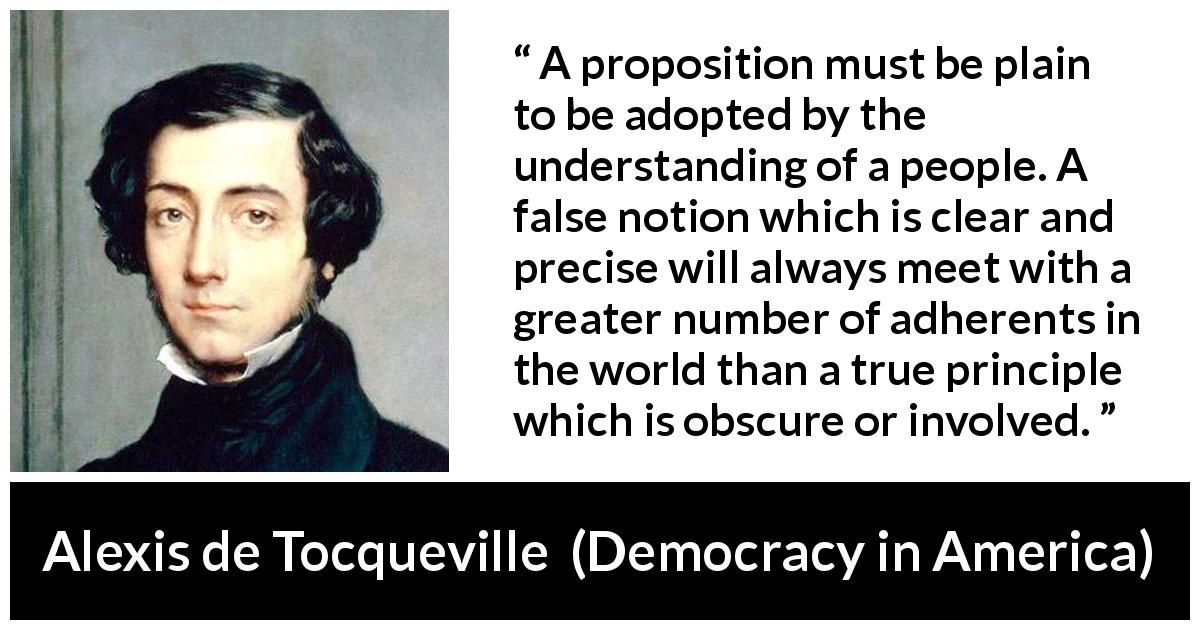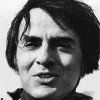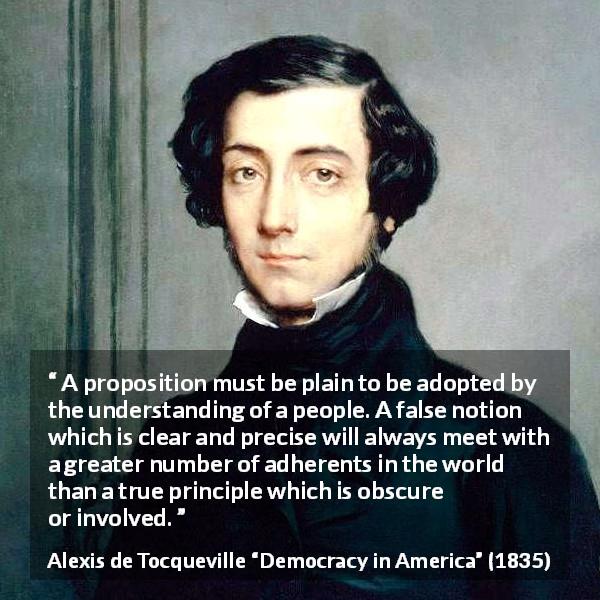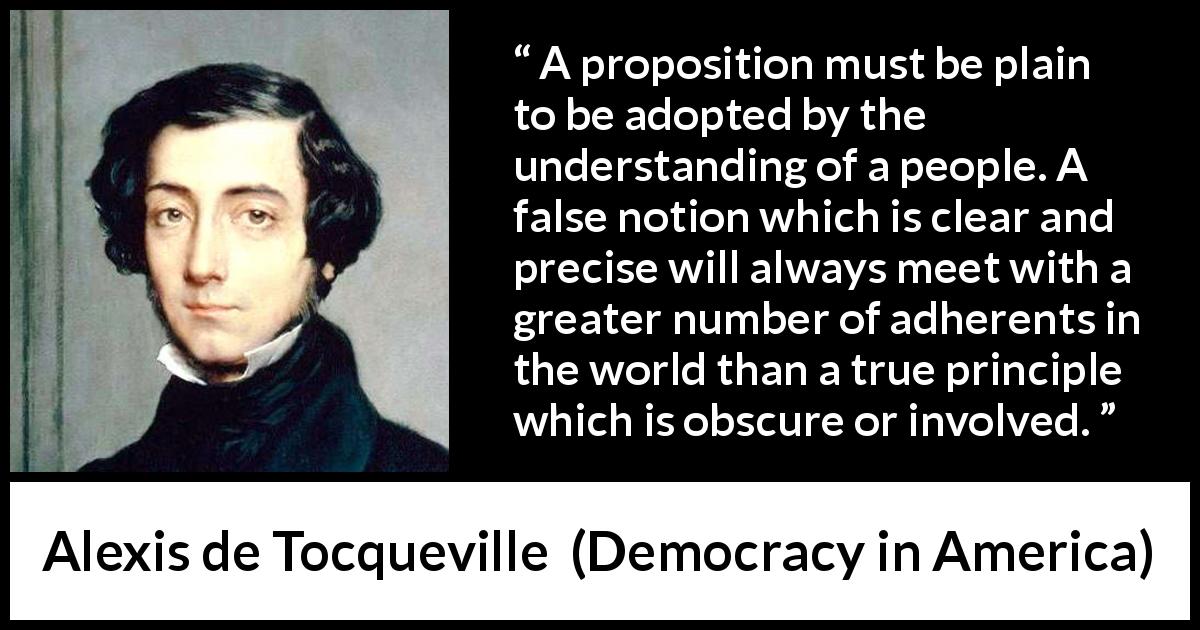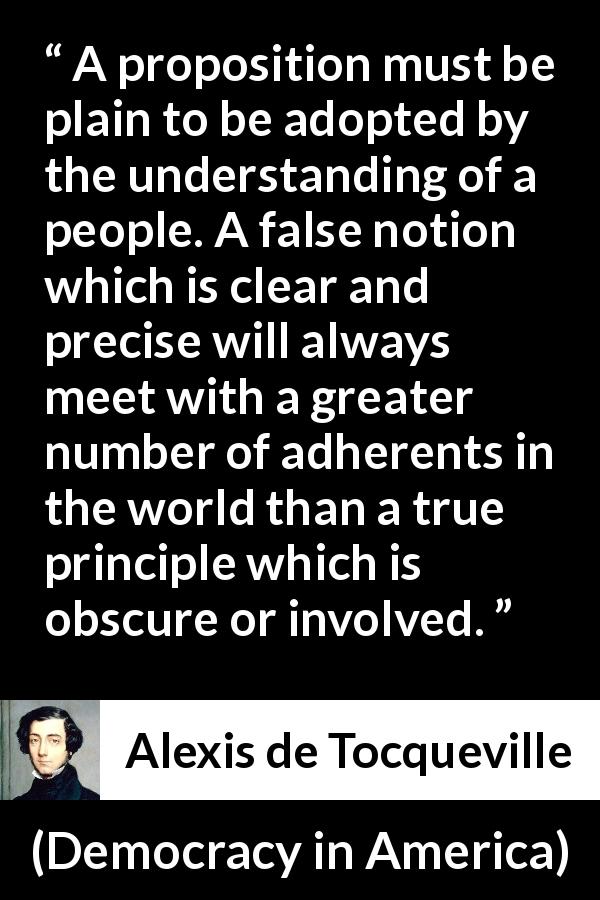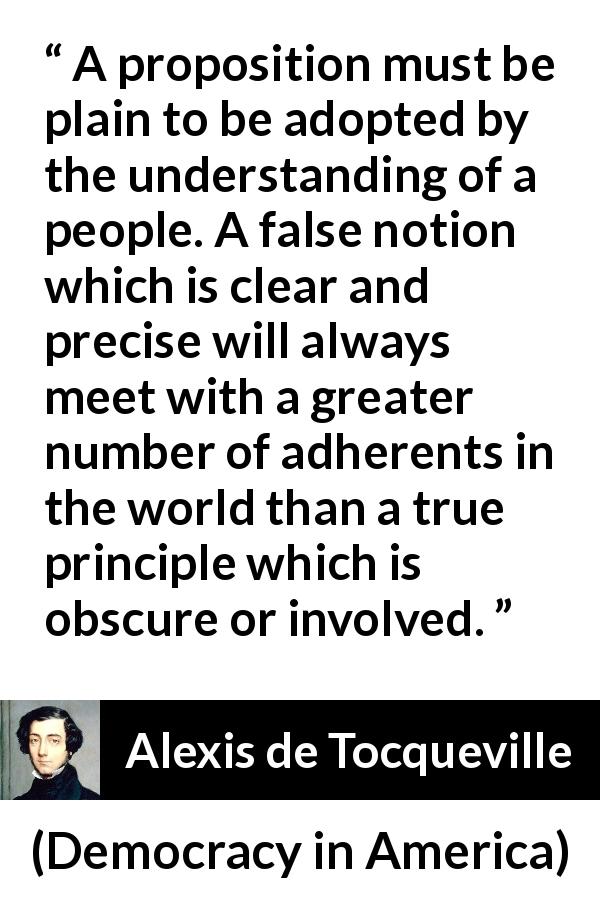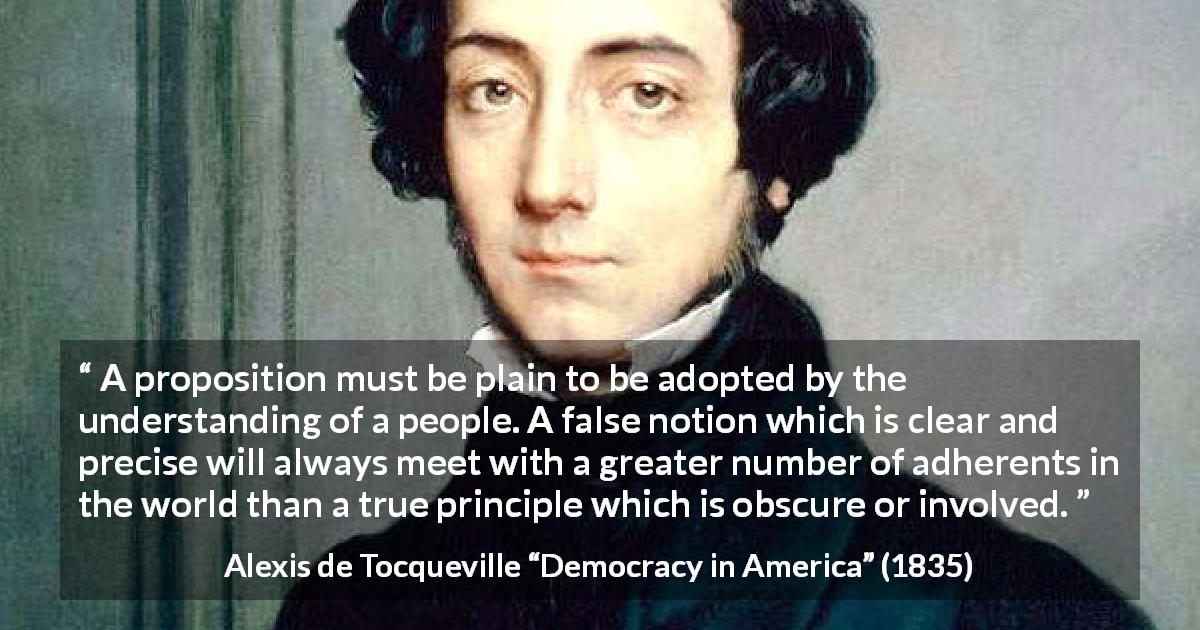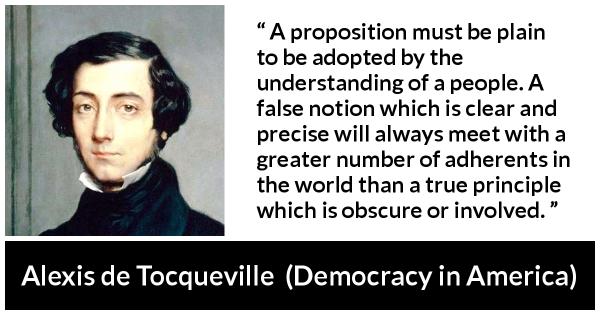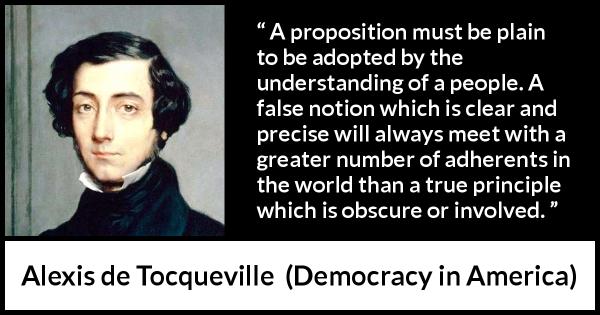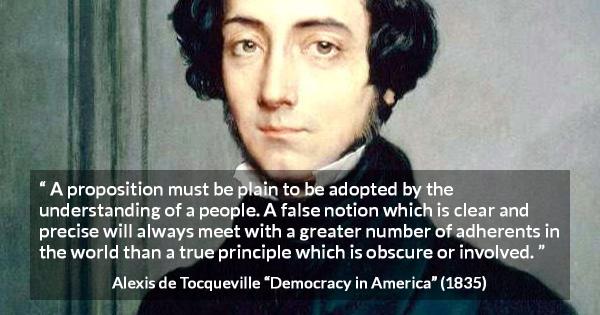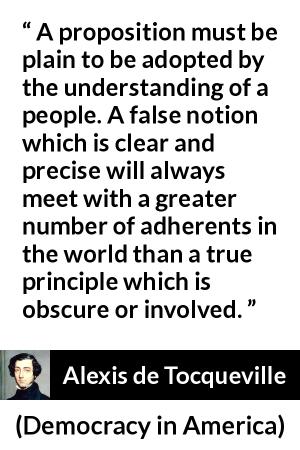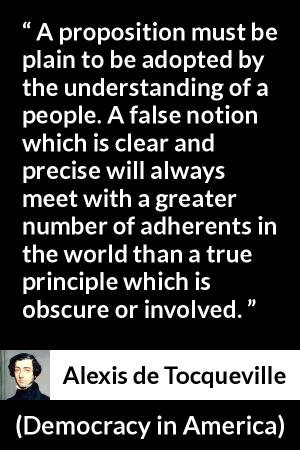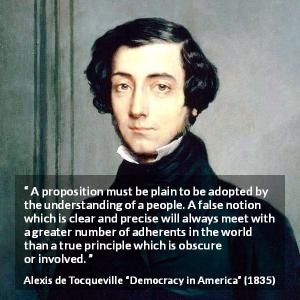“ A proposition must be plain to be adopted by the understanding of a people. A false notion which is clear and precise will always meet with a greater number of adherents in the world than a true principle which is obscure or involved. ”
Alexis de Tocqueville, Democracy in America (1835). copy citation
| Author | Alexis de Tocqueville |
|---|---|
| Source | Democracy in America |
| Topic | truth complexity simplicity |
| Date | 1835 |
| Language | English |
| Reference | |
| Note | Translated by Henry Reeve |
| Weblink | http://www.gutenberg.org/files/815/815-h/815-h.htm |
Context
“The legislator may simplify and equalize the action of these two sovereignties, by limiting each of them to a sphere of authority accurately defined; but he cannot combine them into one, or prevent them from coming into collision at certain points. The Federal system therefore rests upon a theory which is necessarily complicated, and which demands the daily exercise of a considerable share of discretion on the part of those it governs.
A proposition must be plain to be adopted by the understanding of a people. A false notion which is clear and precise will always meet with a greater number of adherents in the world than a true principle which is obscure or involved. Hence it arises that parties, which are like small communities in the heart of the nation, invariably adopt some principle or some name as a symbol, which very inadequately represents the end they have in view and the means which are at their disposal, but without which they could neither act nor subsist.” source
A proposition must be plain to be adopted by the understanding of a people. A false notion which is clear and precise will always meet with a greater number of adherents in the world than a true principle which is obscure or involved. Hence it arises that parties, which are like small communities in the heart of the nation, invariably adopt some principle or some name as a symbol, which very inadequately represents the end they have in view and the means which are at their disposal, but without which they could neither act nor subsist.” source
